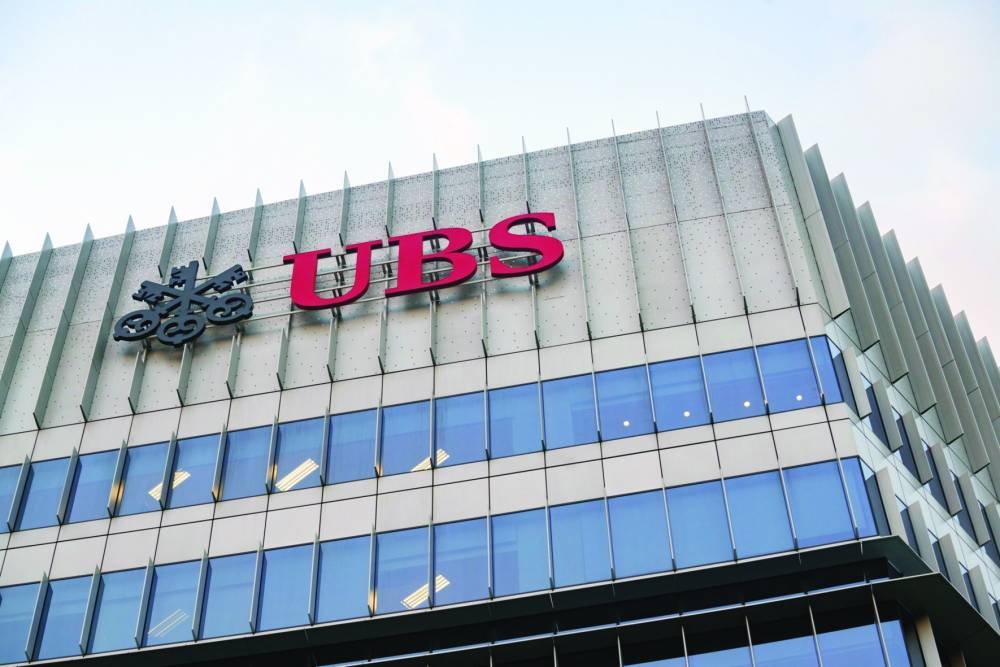Five months after being pulled into the rescue of Credit Suisse, UBS Group AG’s decision to break free of a government backstop is set to accelerate the historic takeover of its smaller rival.
Switzerland’s biggest bank said it will voluntarily end a safety net negotiated as part of its purchase of Credit Suisse, including a 9bn-franc ($10.3bn) loss protection agreement. The move buys UBS more freedom in how it deals with its defunct rival’s riskier assets, which will be placed in a “Non-Core and Legacy unit” for businesses that it doesn’t want, a person familiar with the matter said.
It comes as a taskforce within UBS is wrapping up decisions on the non-core businesses, with the goal of sending out communications to all clients in September, another person familiar with the matter said.
UBS’s decision to give up a ten-figure insurance policy is the clearest indication yet of the bank’s confidence in its financial strength, and followed months of due diligence that gave the lender increasing certainty that the guarantees were no longer needed.
UBS said in May it will benefit from an estimated $34.8bn accounting windfall thanks to the deal when it reports earnings later this month.
The mammoth integration has already started. Job cuts are already taking place, teams are being reshuffled and at Credit Suisse’s New York office, the nameplate on the wall now reads Credit Suisse AG, a UBS Group company. But the bulk of the work lies ahead. “There will be many more milestones to come, and we will share some of these with you when we report our second-quarter results,” Chief Executive Officer Sergio Ermotti and Chairman Colm Kelleher said in an internal memo to staff on Friday.
Those earnings are due later this month and are expected to show an accounting gain of as much as 51bn francs, the biggest bank profit on record, according to estimates shortly after the deal was announced.
The decision to end state support should also secure plenty of political goodwill. The government’s backing of the deal has drawn plenty of criticism in Switzerland, with parliament denying the takeover its blessing in a symbolic vote as public anger spread. While such discontent has since largely receded, it remains a sensitive topic.
“I am fully aware of the responsibilities that come with this important task and that we need to work very avoid any consequences for the taxpayers of Switzerland,” Ermotti said when he was named as CEO in the days after the deal was announced.
At a news conference on Friday, Finance Minister Karin Keller-Sutter noted that the federal government hasn’t had to pay out a single franc in connection with the deal it brokered.
“On March 19, it was necessary to give these guarantees, but I always knew that for UBS it would be politically difficult to use this guarantee,” Keller-Sutter told a news conference, adding that alternative solutions would have led to a greater risk for taxpayers.
Keller-Sutter’s party, the Free Democrats, praised her “prudent leadership.” They told newspaper Tages-Anzeiger that the rescue stabilised the Swiss financial centre and even delivered a profit to the government of about 200mn francs, thanks to the loans it backstopped. That warmer political atmosphere could be helpful if UBS looks to retain Credit Suisse’s Swiss unit.
The fate of the domestic bank has been widely watched as companies and politicians fret over the market power that the combined bank would exercise. Overall, as many as 10,000 jobs could be eliminated if the two Swiss businesses merge due to the high level of overlap in roles, a person familiar with the matter previously told Bloomberg.
After the takeover was announced in March, Kelleher had stressed that UBS would naturally keep what has been called Credit Suisse’s crown-jewel, the Swiss Universal Bank.

Signage atop the UBS Group Penang Road offices in Singapore. Five months after being pulled into the rescue of Credit Suisse, UBS Group’s decision to break free of a government backstop is set to accelerate the historic takeover of its smaller rival.
